
The EPICUR alliance seeks to compliment the development of a common research agenda with a bottom-up process that engages Early Career Researchers in leadership driving innovation in research and methodology. This signifies its commitment to foster and support emerging research as well as ignite institutional changes that help empower Early Career Researchers.
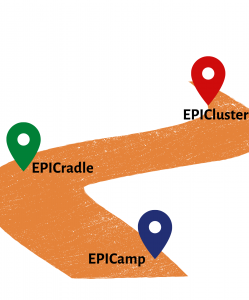 At the end of this bottom-up process, which we will develop and test in the pilot phase of EPICUR Research, there will be two so-called EPIClusters, initiatives with the potential to produce innovation and excellence in research. The themes and participants of the two EPIClusters will be identified and promoted in the course of an iterative bottom-up process. As EPICUR seeks to empower Early Career Researchers rather than pin them against each other, the process although necessarily selective/competitive in its final stages (the selection of EPIClusters) aims to be as inclusive as possible from the start. EPICUR is committed to diversity, as we believe it to be the only basis for true excellence and we believe that advancing Early Career Researchers of all disciplines and backgrounds will make Europe’s collective academia smarter and more competitive in the global market.
At the end of this bottom-up process, which we will develop and test in the pilot phase of EPICUR Research, there will be two so-called EPIClusters, initiatives with the potential to produce innovation and excellence in research. The themes and participants of the two EPIClusters will be identified and promoted in the course of an iterative bottom-up process. As EPICUR seeks to empower Early Career Researchers rather than pin them against each other, the process although necessarily selective/competitive in its final stages (the selection of EPIClusters) aims to be as inclusive as possible from the start. EPICUR is committed to diversity, as we believe it to be the only basis for true excellence and we believe that advancing Early Career Researchers of all disciplines and backgrounds will make Europe’s collective academia smarter and more competitive in the global market.
Therefore, participating in the journey from EPICamps to EPIClusters will be beneficial to Early Career Researchers whether they win a bid for an EPICluster in this first round or not.
Building the EPICUR network of Early Career Researchers from which these research collaborations will emerge, EPICUR Research will offer many workshops and networking opportunities along the way that are open to young scholars from all disciplines and will aid their career development by
The journey will start with the invitation of Early Career Researchers to the so-called EPICamps, a low-threshold format allowing easy participation from anywhere in the alliance. EPICamps will allow Early Career Researchers to engage with like-minded researchers from across the alliance and disciplines in formats ranging from short presentations and poster exhibits to inventions and methodology workshops. In the process, we hope that Early Career Researchers will identify potential for concrete collaboration with their peers from partner universities. In the weeks following an EPICamp, EPICUR staff will offer support developing these first ideas into more concrete initiatives, as well as encourage further networking among Early Career Researchers.
Based on more solid ideas of such informal initiatives and upon a short proposal, groups of up to five members from partner universities from at least three different countries will be invited to apply for EPICradles. These will be joint research sojourns at one of our Institutes for Advanced Studies or at a research facility. EPICradles will allow these small research groups to develop project proposals valid for third party funding. EPICUR staff in close collaboration with the hosting institutes and partner universities will support the emerging research groups through identifying advisors, non-university partners and additional resources. The researchers will set the scientific foundation and design PhD and postdoc projects with which they can apply for an EPICluster. EPICradles and EPIClusters will only start in 2022, thus further information is to follow soon.
EPICamps |
EPICamp noun
E.PI.Camp I \ ˈe-pi-ˌkamp\
= combination of barcamp and EPICUR
= the idea that when curious people gather, great things emerge
EPICamps are low threshold workshops, inspired by the barcamp (also known as unconference) format, offered to Early Career Researchers of the EPICUR alliance to engage with peers as well as established researchers with similar interests in order to pursue joint inter- and transdisciplinary projects on societal challenges. Meeting at an EPICamp allows Early Career Researchers to explore similarities and – perhaps more importantly – complementarities of their research. EPICamps combine different formats – from mini-pitches to larger discussion groups – in order to facilitate networking across our partner universities and to enhance academic matchmaking of researchers from different disciplines and fields.
 EPICamps are hosted virtually (until further notice) by a core group of researchers from at least three of our partner universities. These core groups – called EPICamp Academic Boards – may consists of established and Early Career Researchers from any discipline or field. They will coordinate the topics and themes of the EPICamps along the three EPIChallenges of “Sustainability”, “Migration, Mobility, Identity” and “Public Health.” We encourage interested researchers to reach out to us with ideas and topics that fit into one or more of the three EPIChallenges: whether you would like to contribute a small format or wish to organize an entire EPICamp, all initiative is welcome.
EPICamps are hosted virtually (until further notice) by a core group of researchers from at least three of our partner universities. These core groups – called EPICamp Academic Boards – may consists of established and Early Career Researchers from any discipline or field. They will coordinate the topics and themes of the EPICamps along the three EPIChallenges of “Sustainability”, “Migration, Mobility, Identity” and “Public Health.” We encourage interested researchers to reach out to us with ideas and topics that fit into one or more of the three EPIChallenges: whether you would like to contribute a small format or wish to organize an entire EPICamp, all initiative is welcome.
EPICamps are open to researchers of all career stages from all disciplines and all partners. They are, however, directed primarily at Early Career Researchers who will be eligible for funding in later stages of the EPICUR Research project. Taking into account the diversity of how each partner organizes the career development, EPICUR employs a broad definition of Early Career Researcher for the EPICamps. This means we invite scholars from a broad spectrum of research career development, reaching from the final stretches of their PhDs to the first years of tenure track positions. We also encourage established researchers who would be interested in mentoring Early Career Researchers or would like to advise on projects to attend as well.
Prospective participants of the EPICamps should have a general interest in pursuing interdisciplinary research and/or work transdisciplinary with partners from outside academia. They should have a proven interest in the EPICamp’s topic they wish to attend, however, no previous experience in the field and/or inter- and transdisciplinary work is required.
If an EPICamp’s Call for Participation catches your interest, please sign-up!
The Academic Board of each EPICamp will create an open Call for Participation, which will be distributed widely across the alliance. Paying heed to the format of the barcamp/unconference, the program of each EPICamp will look different, offering opportunities to present work in mini-thesis-presentations, poster sessions, and panel or group discussions etc. but also giving space for ad-hoc gatherings, one-on-one video chats, academic speed-dating sessions and methodology exchanges. EPICamps invite the spontaneity and creativity of their participants, allowing great things to emerge.
If you have questions or you would like to get involved, please contact our Lead Team at the University of Freiburg and the University of Natural Resources and Life Sciences, Vienna.

Eva Rüskamp
Albert-Ludwigs-University Freiburg
Work Package Lead
Common Research Agenda
epicur-research@mail.uni-freiburg.de
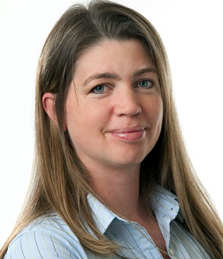
Nina Eisenmenger
University of Natural Resources and Life Sciences Vienna
Work Package Co-Lead Common Research Agenda
EPICradles |
 EPICradle noun
EPICradle noun
E.PI.Cra.dle I \ˈe-pi-ˌ krā-dᵊl \
= the combination of EPICUR and cradle
= the framework and support structure to make great ideas grow
EPICradles are an opportunity for Early Career Researchers (ECRs) from EPICUR partner universities
As such EPICradles function as ‘incubators’ for innovative research led by ECRs. Overall, the main objective is to produce challenge-based projects beneficial to society, addressing such broad topics as sustainability, mobility/migration/identity, and public health. Known as EPIChallenges, these topics are meant to engage researchers in the broader responses to global questions about the future of humanity. During the EPICradles, ECRs will have ample opportunities to engage with senior scholars, administrators and experts from our partner universities, our regional communities, and other stakeholders.
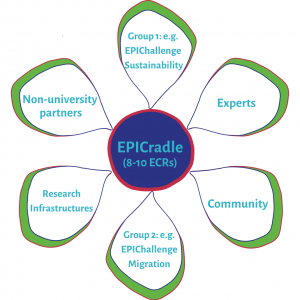 The fellowships will be organized as hybrid formats, running for three months. They will bring together two groups of up to 5 ECRs from different partner universities for virtual and physical collaboration. Both groups will be working on topics relevant to one or more of the EPIChallenges (Sustainability, Mobility/Migration/Identity, Public Health Transitions). This will provide a unique opportunity to foster and explore interdisciplinary and transdisciplinary research activities to foster new academic careers. During the EPICradles, ECRs will ideally turn their research ideas into fundable projects.
The fellowships will be organized as hybrid formats, running for three months. They will bring together two groups of up to 5 ECRs from different partner universities for virtual and physical collaboration. Both groups will be working on topics relevant to one or more of the EPIChallenges (Sustainability, Mobility/Migration/Identity, Public Health Transitions). This will provide a unique opportunity to foster and explore interdisciplinary and transdisciplinary research activities to foster new academic careers. During the EPICradles, ECRs will ideally turn their research ideas into fundable projects.
Eva Rüskamp
Albert-Ludwigs-University FreiburgWork Package Lead
Common Research Agendaepicur-research@mail.uni-freiburg.de
Nina Eisenmenger
University of Natural Resources and Life Sciences Vienna
Work Package Co-Lead Common Research Agenda
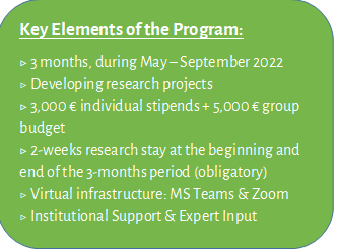 EPICradles are open to Early Career Researchers from all disciplines and all partner institutions. Taking into account the diversity of career development stages at different institutions, EPICUR employs a broad definition of an Early Career Researcher for the EPICradles. Namely, we invite applicants who are in the final stages of their PhDs as well as prospective candidates within a +/- 6-year range of receiving their doctorates (exceptions in the case of family and care responsibilities will be made on an individual basis). We also welcome more advanced researchers or non-university applicants with an interest in transdisciplinary work, who bring their own funding.
EPICradles are open to Early Career Researchers from all disciplines and all partner institutions. Taking into account the diversity of career development stages at different institutions, EPICUR employs a broad definition of an Early Career Researcher for the EPICradles. Namely, we invite applicants who are in the final stages of their PhDs as well as prospective candidates within a +/- 6-year range of receiving their doctorates (exceptions in the case of family and care responsibilities will be made on an individual basis). We also welcome more advanced researchers or non-university applicants with an interest in transdisciplinary work, who bring their own funding.
Prospective participants of the EPICradles should have a general interest in pursuing interdisciplinary research and/or transdisciplinary work with partners from outside academia. They should have a proven interest in the EPIChallenges they wish to work on; however, no previous experience in the field and/or inter- and transdisciplinary work is required.
The Call for EPICradle Applications for the first round in summer of 2022 was launched March 15th; for more information, please follow this link.
EPIClusters |
EPICluster noun
E.PI.Clus.ter I \ ˈe-pi-ˌ klə-stər \
= the combination of EPICUR and cluster
= an aggregation of researchers and civil society partners who work to solve the world’s big issues
 EPIClusters will be new, trans- and interdisciplinary, challenge-oriented research formats which will also include stakeholders from other sectors like business, industry, politics, NGOs, public services, townships or regions. At the same time, EPIClusters will inspire sharing infrastructures and respective resources all over our network in order to create up-scalable best practices of joint research and innovation.
EPIClusters will be new, trans- and interdisciplinary, challenge-oriented research formats which will also include stakeholders from other sectors like business, industry, politics, NGOs, public services, townships or regions. At the same time, EPIClusters will inspire sharing infrastructures and respective resources all over our network in order to create up-scalable best practices of joint research and innovation.
More information coming soon.
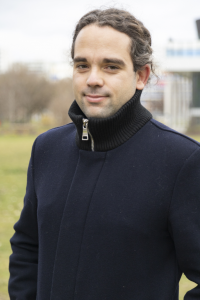
Guillaume Parodi
University of Strasbourg
Work Package Lead
EPICluster & New Forms of Research Collaboration
